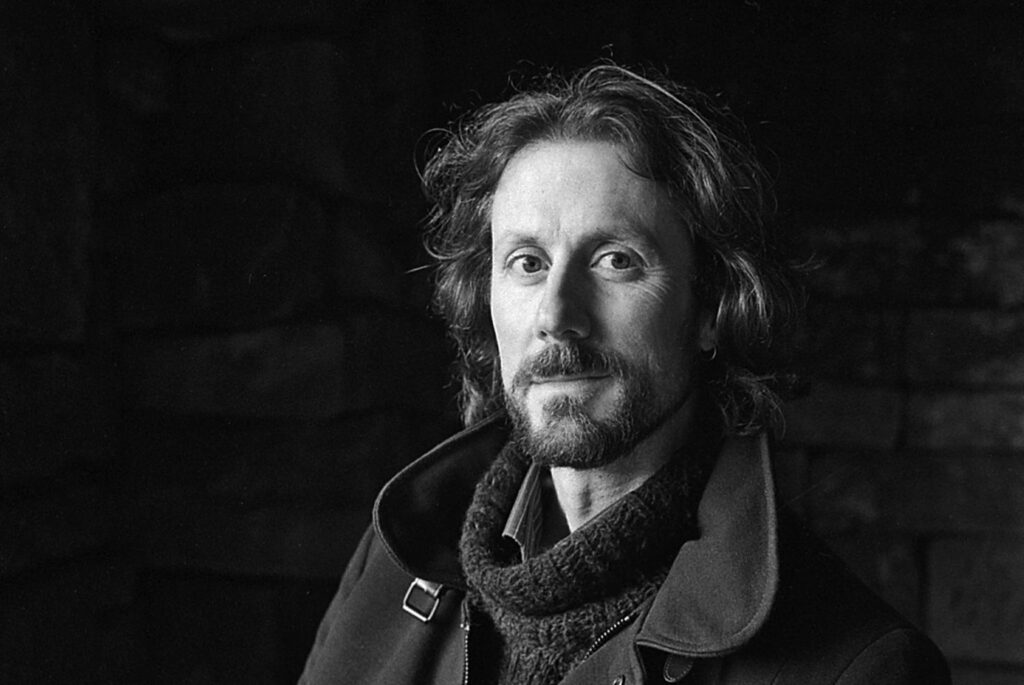Blog Post
Where Will You Draw Your Line? An Interview with Paul Kingsnorth
By Jonathon Van Maren
Throughout the COVID-19 pandemic, Paul Kingsnorth has been one of the most interesting writers to analyze our emerging narratives, government crackdowns, and the technocracy springing up overnight. What makes Kingsnorth uniquely qualified for this moment is that he’s been writing about what he calls “the Machine”—a “great agglomeration of capitalism, state power, and technology”—for decades. His 2017 book, Confessions of a Recovering Environmentalist, includes an essay titled The Barcode Moment that detailed the inexorable rise of a web of technologies all around us, and asked readers the question: Where will you draw your line?
“At what moment does the direction of travel of the Machine become so obvious, so intolerable, so frightening, that you can no longer acquiesce?” he asked. “What is the breaking point? For some people it was smartphones. For others it might have been social media. These days I think that the really smart people stepped off the carousel at dial-up modems and went quietly into the woods.”
Kingsnorth himself didn’t go quite that far—he moved with his family to the Irish countryside, where he is making a go at a measure of self-sustainability. But with the COVID pandemic, the abrupt introduction of vaccine passports, and the accompanying demonization of the vaccine-hesitant, Kingsnorth has drawn his line. He isn’t against vaccines per se, but he will not participate in the systems being built around us. He laid out why in three compelling essays last year that were published on his Substack, The Abbey of Misrule.
The essays have proven so popular that he subsequently compiled them into a free downloadable e-book, The Vaccine Moment: Covid, Control, and the Machine. He analyzes vaccine passports, propaganda, and the pitched battles unfolding on streets across the West as populist uprisings swell in response to the curtailing of civil liberties.
In the most fascinating of the three essays, he details how some elites would like to utilize this vaccine moment as laid out by the World Economic Forum’s Klaus Schwab in his book, COVID-19: The Great Reset. One does not have to be a conspiracy theorist, Kingsnorth notes, to observe that the world Schwab would like to build is, in fundamental ways, a post-human one:
This is the essence of the Great Reset: the construction of a future which is at once controlled and catatonic, dystopian and dull, monitored and monotonous beyond bearing. A future in which global corporations are free to build the world they have long desired: a borderless, interconnected market technocracy, in which each human individual is a tracked, traced and monitored production and consumption machine—all in the name of public health and safety.
As nation states and their leaders lose power to the advance of globalization, that power has pooled around a different group—“those who create and control the world’s technological infrastructure”—including Bill Gates, Mark Zuckerberg, Klaus Schwab, Jeff Bezos, and others. It is important to reject ‘weird conspiracy theories‘ precisely because it is essential that we remain clear-eyed about the world these people want to build. They aren’t hiding it. Schwab wrote a book about it, which you can purchase and have delivered to your home overnight by Amazon, courtesy of Jeff Bezos.
The question, Kingsnorth writes, is whether this is the world we want—or whether it is one we will decide to resist. What follows is my interview with Kingsnorth on our vaccine moment and the new era it is ushering in.
INTERVIEW
Many have noted that the COVID-19 pandemic did not make things worse so much as simply accelerate existing trends. You’ve been writing about what you call ‘the Machine’ for years—would you agree with this analysis? Are there specific instances of trends that have concerned you that have accelerated as a result of pandemic measures?
Absolutely. Covid has acted as an accelerant to pre-existing trends towards digitisation, monitoring, and control. The obvious example would be the rise of Zoom, and the ease with which so many of us have got used to working ‘remotely.’ Even children in schools have been acculturated into this, and now that the pandemic is easing, many employers are seeking to embed this permanently.
Another example, the one that concerns me most, is the normalisation of the vaccine passport. These things are useless from a health point of view—being vaccinated prevents neither infection nor, crucially, transmission of the virus—but the speed with which they were rolled out and normalised, and the way in which the media was used to encourage the persecution of those who refused to comply, was the most disturbing thing I’ve seen in my country in my lifetime.
We should expect all this to continue; much of it was planned in advance, and the virus was a useful means of making it happen. That’s no ‘conspiracy theory’; vaccine passports, for example, were on the EU’s drawing board since 2018, and the notorious Klaus Schwab, head of the World Economic Forum, wrote a whole book about how COVID could be used to implement his ‘Great Reset.’ I’ve read it: it’s both boring and sinister at once, which is quite a feat.
The phrase ‘conspiracy theorist’ used to mean something, but, as you point out, many of the people who received this label turned out to be correct on a number of pandemic developments and predictions of government overreach. How can people of good faith begin to discern the difference between actual conspiracy theory, medical misinformation, and the truth?
‘Conspiracy theorist‘ is a phrase like ‘racist,’ ‘fascist,’ or ‘anti-vaxxer’: perhaps it had a concrete meaning once, but at this point it is purely a propaganda term, which is used to attempt to dismiss an argument or a demonise a person making it. The problem we’ve had over the past two years is an almost total alliance of government, much of big business, big tech, and mainstream media, who together have sought to push one single narrative and to close down, censor, or demonise alternative ways of seeing things or even asking reasonable questions. It’s been extremely disturbing to see this, and for me—a former journalist—it’s given the final lie to the notion that anything like an objective or public-spirited media exists. This makes it harder to discern what’s real, especially amongst the myriad of online claims, some serious and many bonkers.
READ THE REST OF THIS INTERVIEW AT THE EUROPEAN CONSERVATIVE








